Freshly squeezed juice has gained popularity among health-conscious individuals seeking nutrient-rich beverages. With an array of juicer options available in the market, it can be challenging to determine which type is best suited for your needs. In this blog post, we’ll explore the differences between cold press and centrifugal juicers, highlighting their pros and cons for personal use at home so you can make an informed purchasing decision supporting your health.
***This post may contain affiliate links and we may earn compensation when you click on the links at no additional cost to you. All product recommendations and feedback are ours and based on personal experience. Please refer to our Disclosure Policy.
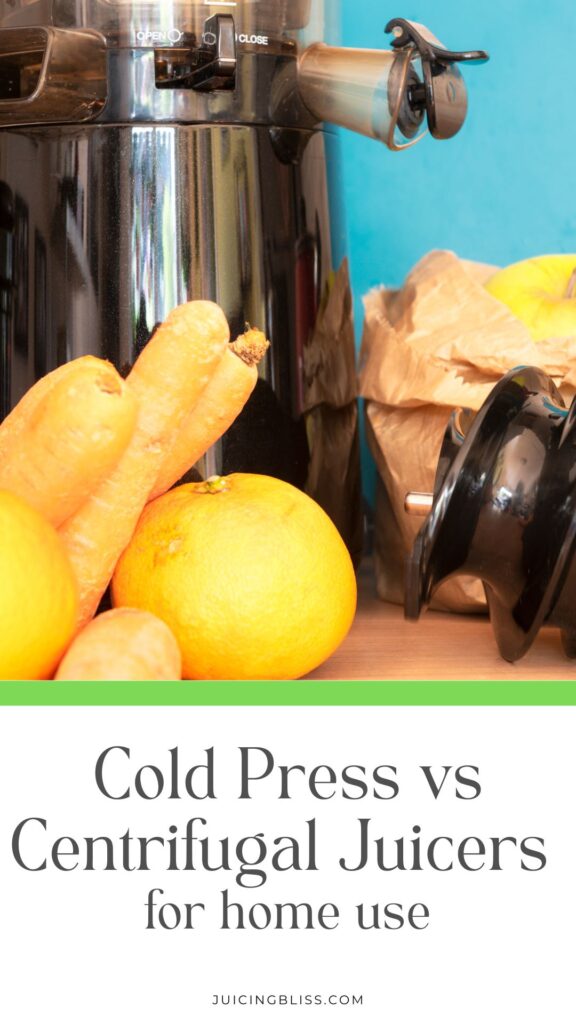
Cold Press Juicers
Cold press juicers, also known as masticating or slow juicers, work by crushing and pressing fruits and vegetables to extract the juice. Unlike their centrifugal counterparts, they operate at a lower speed, typically ranging from 40 to 80 RPM (rotations per minute). Cold press juicers are designed to slowly extract juice, minimizing heat and oxidation, thereby preserving the natural enzymes, vitamins, and minerals in the juice. Best thing is that you can find many cold press juicers for home just under a $100.
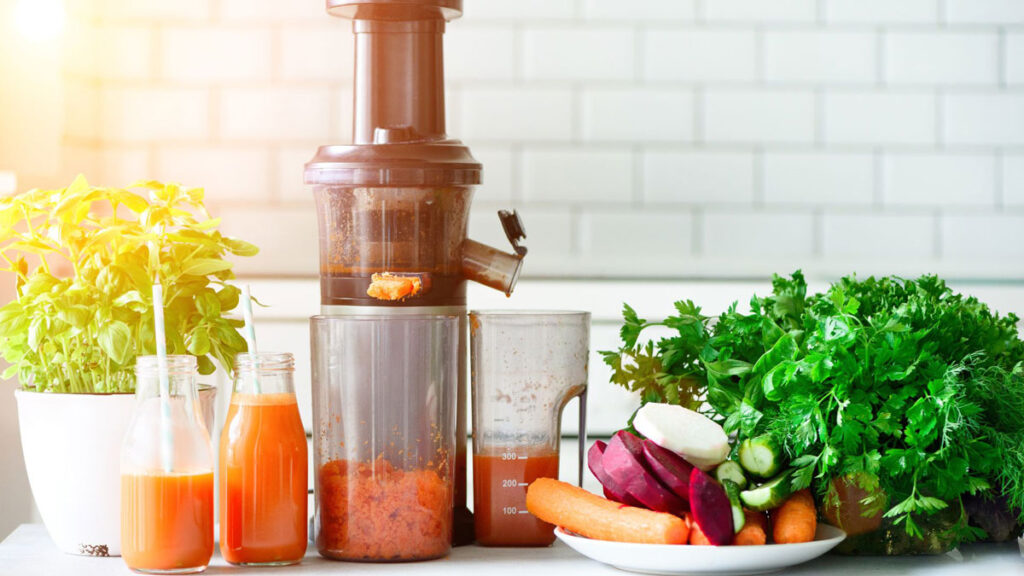
Pros of Cold Press Juicers
- Nutrient Preservation: The slow extraction process minimizes heat buildup, preserving the nutritional integrity of the juice. This results in higher levels of vitamins, minerals, and enzymes, providing a nutrient-dense beverage.
- Yield and Efficiency: Cold press juicers are known for their high juice yield. They effectively extract juice from a wide range of produce, including leafy greens, resulting in less waste.
- Longer Shelf Life: Due to minimal oxidation during the juicing process, cold press juices have a longer shelf life compared to juices produced by centrifugal juicers. They can retain their freshness and nutritional value for up to 72 hours when refrigerated properly.
Cons of Cold Press Juicers
- Slower Juicing Process: The slow speed of cold press juicers means that the juicing process can take more time compared to centrifugal juicers. This might not be ideal for those who prefer a quick juicing experience.
- Price Range: Cold press juicers tend to be more expensive than centrifugal juicers due to their advanced technology and higher-quality juice output. However, the investment may be worthwhile for those seeking optimal nutrient retention.
- More Prep Time: Cold press juicers often require a bit more preparation time, as some produce might need to be chopped or sliced into smaller pieces before juicing. This additional step can be time-consuming, especially when preparing larger batches.
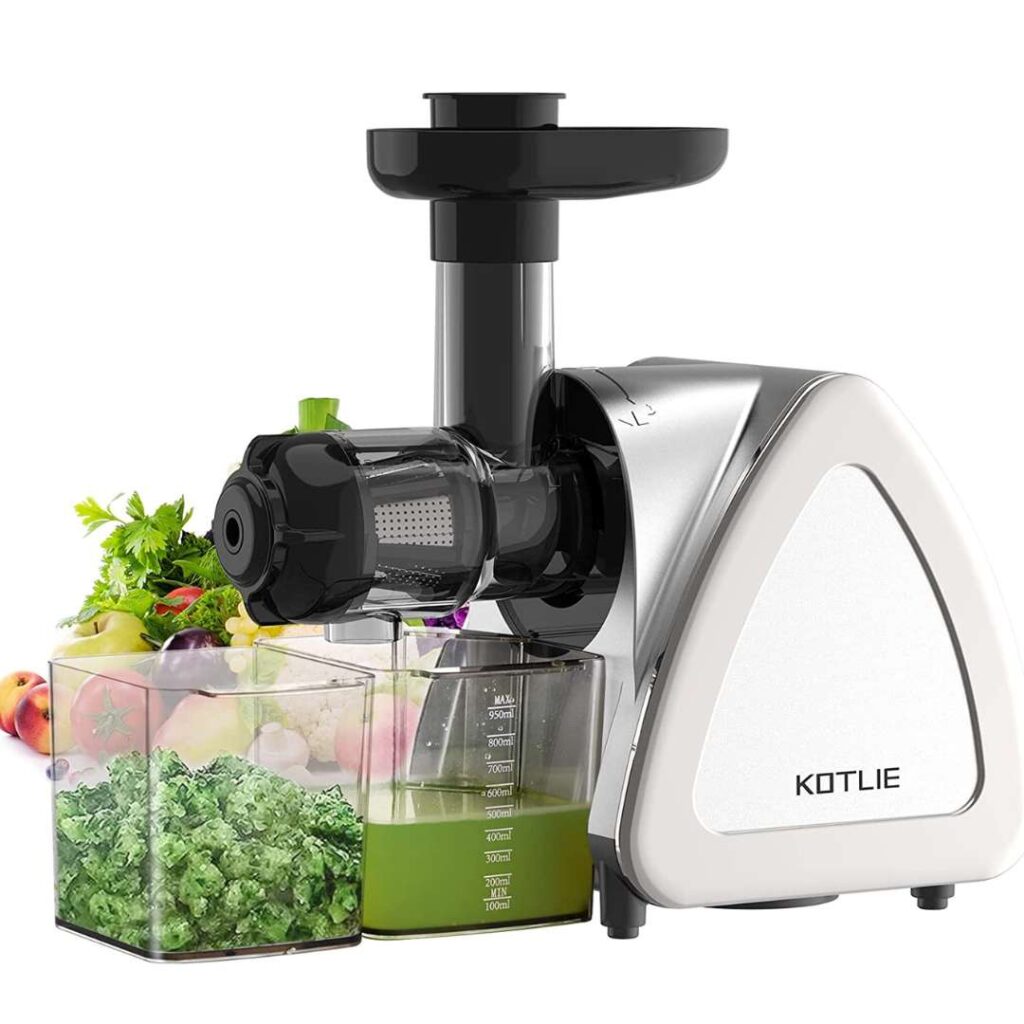
Exploring Centrifugal Juicers
Centrifugal juicers are the more traditional and widely available type of juicers. They operate at high speeds, typically ranging from 3,000 to 16,000 RPM. These juicers use sharp blades to slice fruits and vegetables, and the centrifugal force generated separates the juice from the pulp.
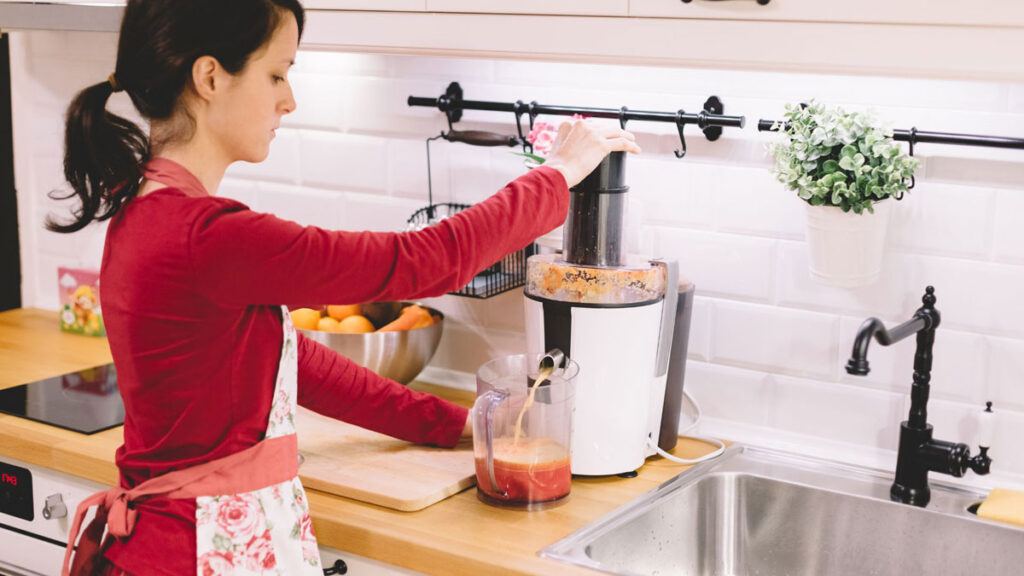
Pros of Centrifugal Juicers
- Speed: Centrifugal juicers are significantly faster than cold press juicers. They can quickly extract juice, making them ideal for those with time constraints or who prefer a swift juicing experience.
- Ease of Use: Centrifugal juicers often have larger feeding chutes, allowing for whole or larger pieces of produce to be juiced without extensive preparation. This feature simplifies the juicing process, reducing prep time.
- Affordability: Compared to cold press juicers, centrifugal juicers are generally more affordable. They offer a budget-friendly option for individuals looking to incorporate juicing into their routine without breaking the bank.
Cons of Centrifugal Juicers
- Nutrient Loss: The high-speed spinning action of centrifugal juicers generates heat, which can lead to the breakdown of some heat-sensitive vitamins and enzymes. Consequently, the juice produced may have slightly lower nutritional content compared to cold press juice.
- Lower Juice Yield: Centrifugal juicers tend to yield less juice than cold press juicers, particularly when juicing leafy greens or softer fruits and vegetables. The resulting juicing pulp may also contain more moisture, indicating that some juice was left behind.
- Shorter Shelf Life: Due to increased oxidation during the juicing process, juices produced by centrifugal juicers have a shorter shelf life. They are best consumed immediately after juicing to maximize their nutritional value.
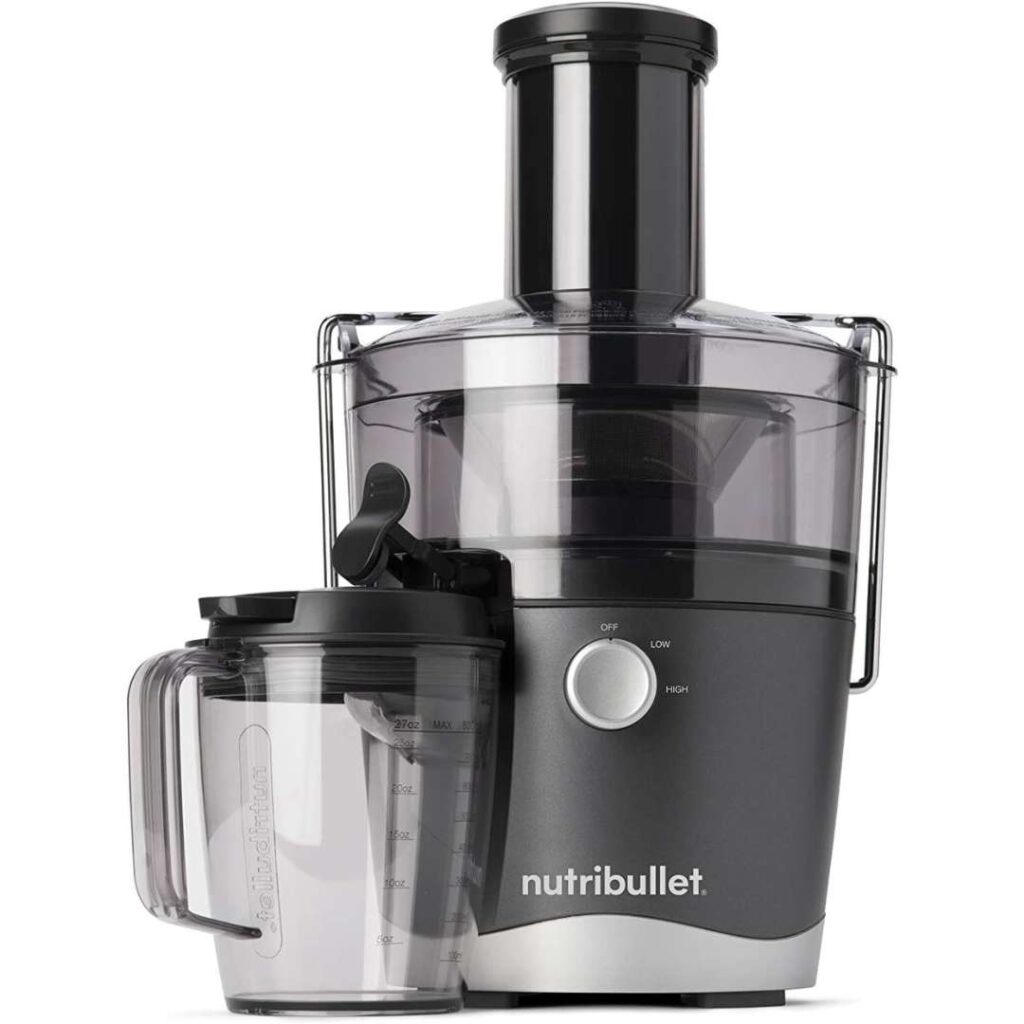
Concluding notes
Choosing between a cold press and a centrifugal juicer for personal use at home depends on your priorities, preferences, and budget. Cold press juicers excel in preserving nutrients, yielding high-quality juice with an extended shelf life. On the other hand, centrifugal juicers offer convenience, speed, and affordability. By considering the pros and cons outlined in this blog, you can make an informed decision that aligns with your juicing goals.
Remember, the choice between cold press or centrifugal juicer ultimately depends on your personal preferences and lifestyle. Whether you opt for a cold press or centrifugal juicer, incorporating freshly squeezed juice into your daily routine is a step toward a healthier lifestyle.
Enjoy the wonderful nutrition and amazing health benefits of Juicing! And don’t forget to check out the complete A to Z List of Vegetable, Fruit and Berry Juices with notes on nutrition and health benefits.
Cheerfully yours,
Juicing Bliss Team


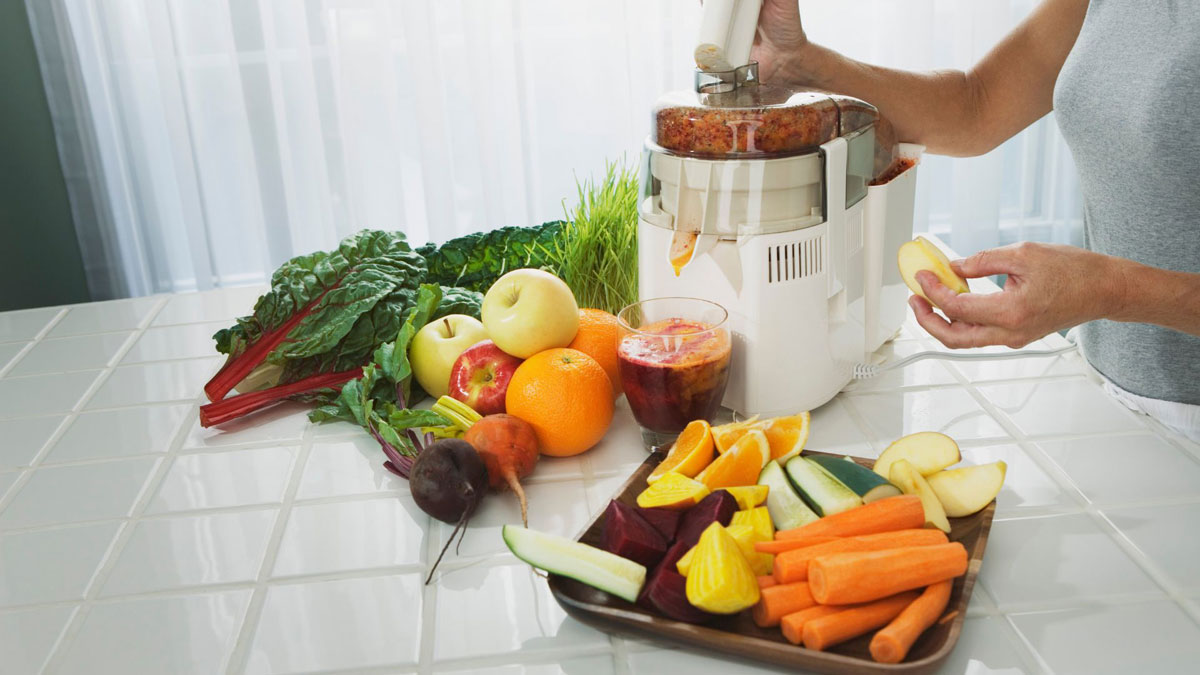
4 thoughts on “Juicing 101: Cold Press vs Centrifugal Juicers for Home Use”
Comments are closed.